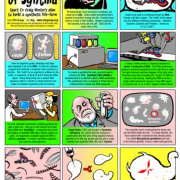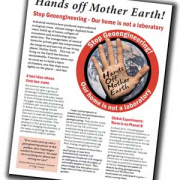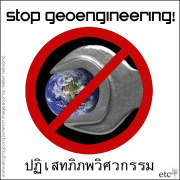Sintia está viva … ¡y reproduciéndose! ¿Panacea o caja de Pandora?
Enviado por ETC Staff el
En un documento publicado hoy en la revista Science, el Instituto J. Craig Venter y Synthetic Genomics, Inc anunciaron la creación en laboratorio del primer organismo autoreplicante cuyo genoma completo fue construido desde cero por una máquina. (1) La construcción de este organismo sintético, que el Grupo ETC previó y apodó “Sintia” hace tres años, provocará acalorada controversia sobre la ética de construir vida artificial y las implicaciones del muy desconocido campo de la biología sintética.






